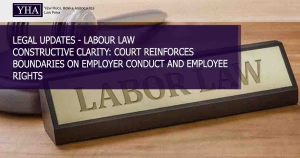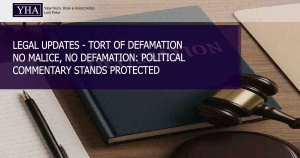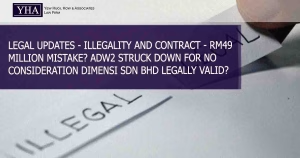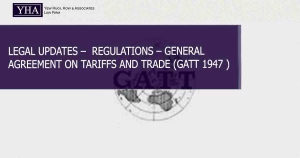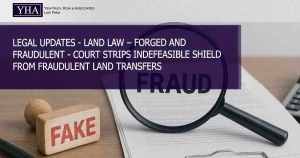
LAND LAW – FORGED AND FRAUDULENT – COURT STRIPS INDEFEASIBLE SHIELD FROM FRAUDULENT LAND TRANSFERS
In the landmark decision of Baskaran a/l Govindasamy & Ors v Chiew Yit Kin [2025] 3 MLJ 372, the Court of Appeal held that indefeasible title protection under the National Land Code cannot extend to land transfers tainted by fraud or forgery. Emphasizing rigorous judicial scrutiny, the Court decisively invalidated a fraudulent property transfer, reinforcing that landowners’ rights remain safeguarded against deceitful transactions, and serving as a critical reminder for parties to diligently verify the authenticity of transfer documents to prevent fraudulent claims.

